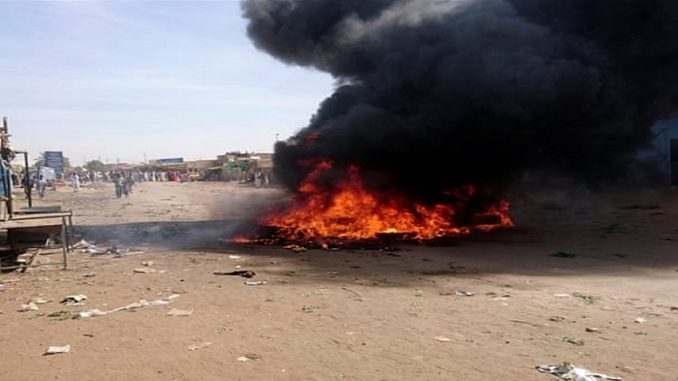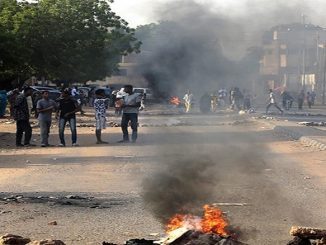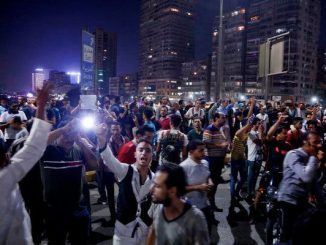
Ten Protests have been killed in clashes with armed police in northern and eastern Sudan.
At least 10 people have been killed in protests that have swept across Sudan this week amid rising public anger over soaring prices and other economic woes.
A government decision to raise the price of a loaf of bread from one Sudanese pound to three (from about two to six US cents) sparked demonstrations across the country on Wednesday.
Protests against bread and fuel price rises were also dispersed in the capital, Khartoum, and other towns.
The demonstrations began on Wednesday in Atbara, Ed-Damar and Berber, where Sudanese police fired tear gas to break up large crowds of protesters chanting anti-government slogans.
The disturbances later became violent and several people were reportedly shot
Footage on social media appeared to show protesters attacking the ruling party’s offices in Atbara, setting them alight.
Witnesses said that in some areas, the military was not intervening and even appeared to be siding with the demonstrators.
One of those killed in clashes with security forces in al-Qadarif was a university student.
“The situation in al-Qadarif has become dangerous and the protests have developed to include fires and theft and it’s now out of control,” lawmaker Mubarak al-Nur told reporters on Thursday.
Sudan’s security forces have previously used deadly force to break up protests over price increases.
The Sudanese government is now expected to remove a raft of subsidies, leading to further rises.
Economy struggles
Anger has been rising across Sudan over the rising costs of bread and fuel and other economic hardships, including skyrocketing inflation and limits on bank withdrawals.
The country’s economy has struggled to recover from the loss of three-quarters of its oil output – its main source of foreign currency – since South Sudan seceded in 2011, keeping most of the oilfields.
The country’s economic woes have been exacerbated in the past few years, even as the United States lifted its 20-year-old trade sanctions on Sudan in October 2017.
Economic conditions in Sudan have deteriorated in recent months, despite the lifting of longstanding US sanctions, with inflation at almost 70%.
Bread prices have more than tripled since the start of this year after a government decision to stop state-funded imports of wheat.



